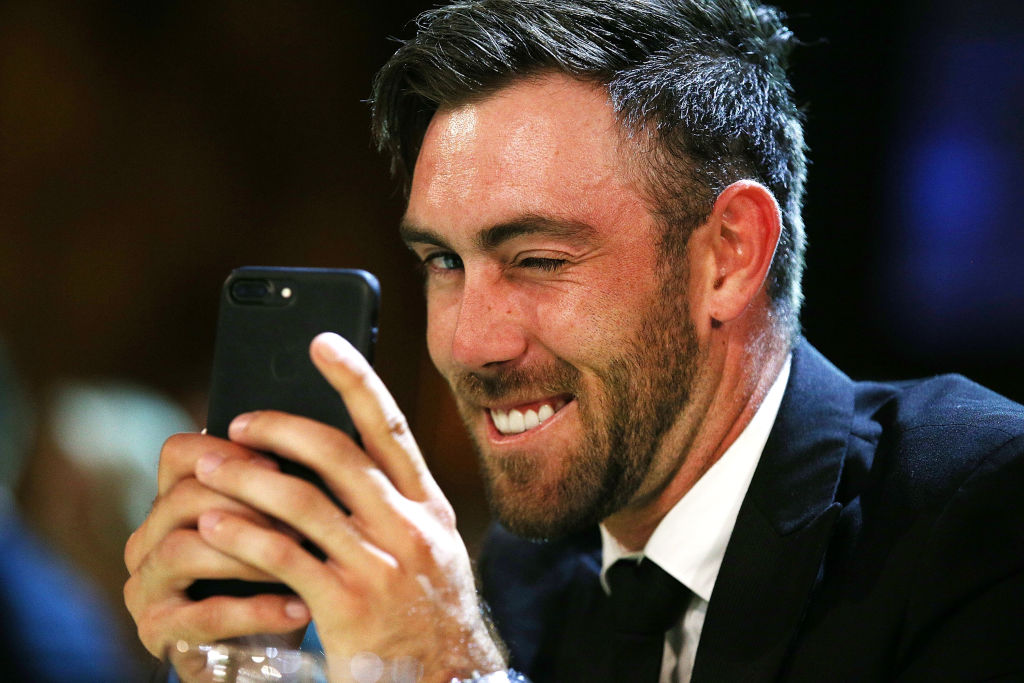North column: It’s time for Glenn Maxwell to show his true worth for Australia

MELBOURNE, AUSTRALIA - FEBRUARY 12: Glenn Maxwell films with an iphone at the 2018 Allan Border Medal at Crown Palladium on February 12, 2018 in Melbourne, Australia. (Photo by Michael Dodge/Getty Images)
(Photo: Getty Images)
In last Wednesday’s opening T20 International between Australia and England, we saw first-hand why Glenn Maxwell carries such a fierce reputation in white-ball cricket. To thump a 58-ball hundred, and to reach three figures from the final ball, was what many people have become accustomed to with cricket’s ‘Big Show’.
But the innings will no doubt continue to frustrate Maxwell’s critics, who point to his obvious potential not quite being fulfilled. Scoring a match-winning century in any format can never be sniffed at. But Australia need more from Maxwell and they believe he has the talent to succeed at the very highest level.
That’s why, in my opinion, Steve Smith served up some public criticism of the all-rounder last month after his omission from the Australian one-day side, saying the player needed to train smarter in order for the national selectors to get the best from him.
Smith was criticised in some quarters for making his stance to the media, but I believe he was only stating what the majority of cricket fans in Australia think. Maybe it was the last resort, but I don’t have a problem with players putting heat on other players. This is a serious profession that demands discipline.
We saw Maxwell at his best on Australia’s tour to India last year, where he proved he has the game and patience to deliver in the toughest conditions. But since then there is an argument that he has slipped back into old habits, with a gung-ho attitude in training.
When I first saw the guy play State cricket six or seven years ago, it looked for all the world that he would go on and be the world-beater we all thought he would be. He was averaging mid fifties at the time, but there has been too much ‘stop-start’ and he needs to find a way to channel his aggression and deliver consistency; he really could be a star for Australian batting at number six.
If Maxwell needed any inspiration for how to apply himself, he could do a lot worse than look at the rise of David Warner. The Bull came into the Australian T20 side in 2009 with a reputation as little more than a basher from Grade cricket. But he has worked tirelessly on his game, building on the aggressive fundamentals he already had while developing and working on an understanding of how to play to different situations.
Smith’s public call-out for Maxwell was actually pretty calculating – not to mention gutsy – because it might just be the wake-up call the player needs.
Clubs in decline…
In a couple of weeks’ time, you’ll read an interview in this very paper with former England player Dead Headley, who among other points, raises the issues that club cricket faces in this country.
As someone who still plays club cricket now in the North East, I do have concerns for the game at grassroots level. Clubs all over the country are losing players and folding due to a lack of availability.
Since the ECB Premier Leagues were introduced in 2000, you could argue that in some cases the standards of club cricket have risen. But overall it has become disjointed and there isn’t an even playing field across the leagues. Young players are not being enticed to the game and when they are, clubs are struggling to keep them involved, and the gaps between 1st team cricket and second is too big.
Cricket is fighting against many obstacles, and club cricket needs to be looked at because it is a vital development tool for the game at the highest level.